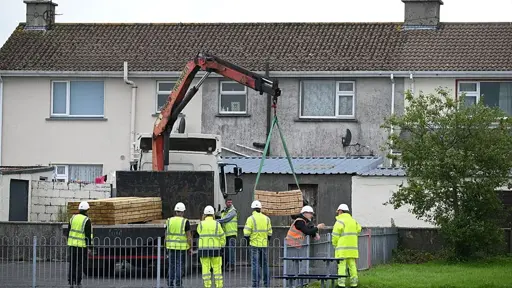The home, which was run by an order of Catholic nuns and closed in 1961, was one of many such institutions that housed tens of thousands of orphans and unmarried pregnant women who were forced to give up their children throughout much of the 20th century.
In 2014, historian Catherine Corless tracked down death certificates for nearly 800 children who died at the home in Tuam between the 1920s and 1961 — but could only find a burial record for one child.



I think you nailed it here. The successful religions are the ones that are useful as tools for the powerful. It’s not the cause of evil, but it’s something that lets powerful people convince people to do awful things.
On the other hand, for the believers, it’s a source of community and comfort. They’re given simple rules to follow and promised that their suffering is not in vain. It gives them simple answers to complex questions.
It also allows people to get over feeling bad. A bad thing is “part of god’s plans”. A bad thing you did is not really your fault because a trickster god made you do it, or the devil made you do it, so you don’t need to do any self-reflection. Or, a bad thing happened to you or someone you love, that’s just a bad god, or a devil, or a complex part of a god’s plan, so you don’t need to worry about it. This is all really useful for leaders, because they’re inevitably closer to the gods than the people they control, and they get to use excuses like “you’re suffering because the gods are unhappy with you” or “it’s your lot in life, because you were born to that caste” or “this was all because of this wicked group of other people who believe in a different god, so we should kill them and take their land”.
Humans are flawed and sometimes evil, but religion is a very useful tool to manipulate those people.